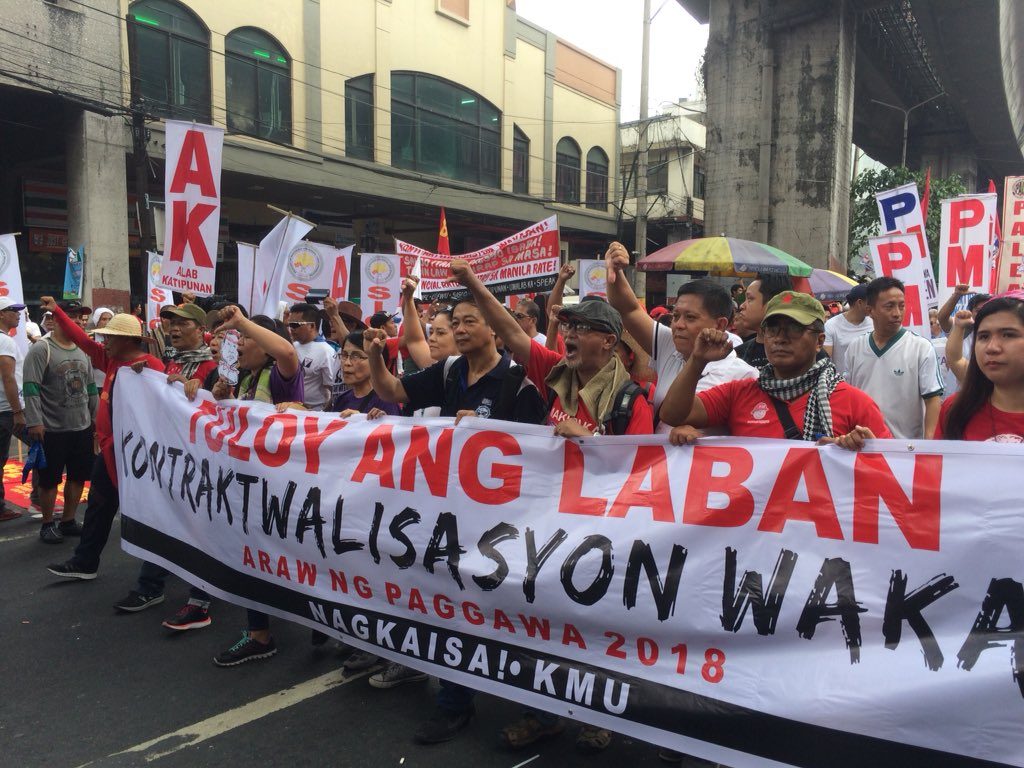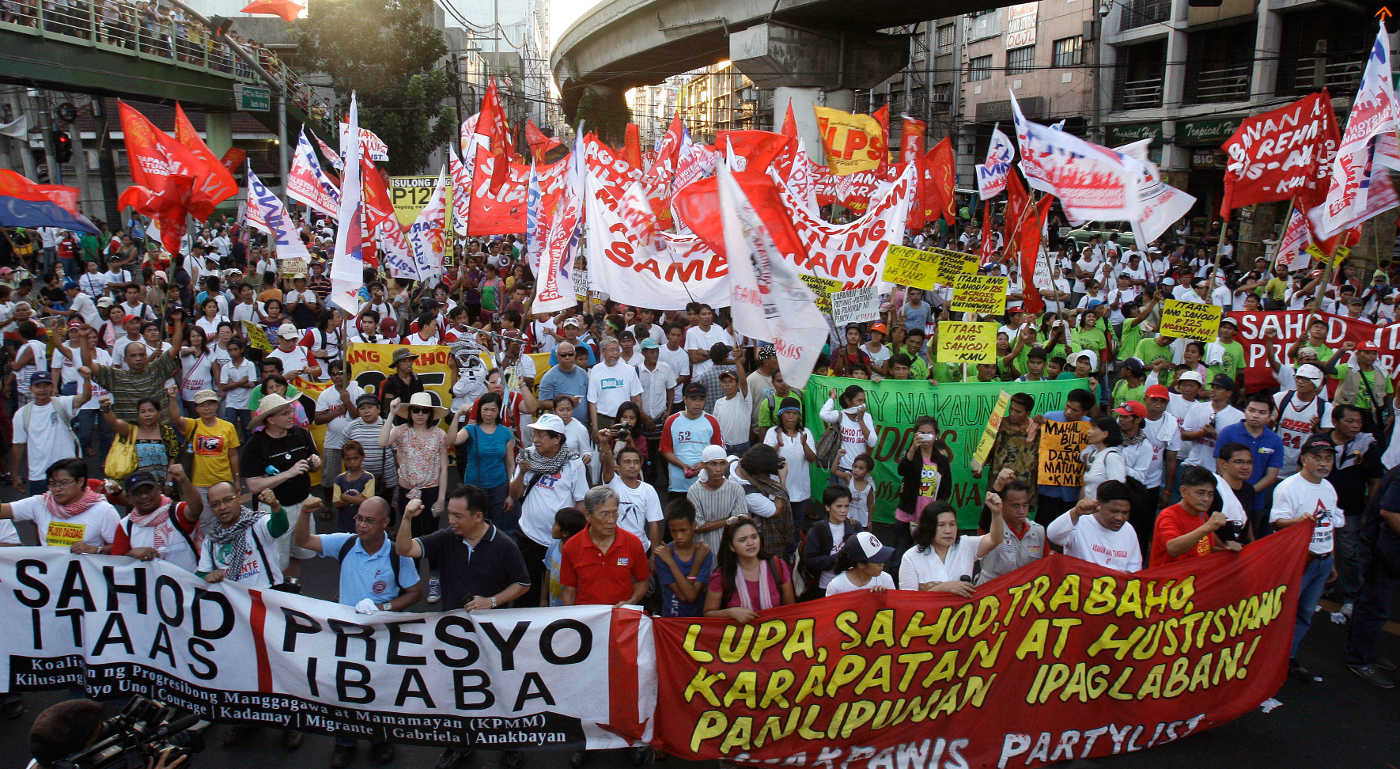MANILA, Philippines (ViaNews) – Tens of thousands of protesters here were unfazed as they marched the streets of Manila under the scorching heat of the sun and the occasional drizzles and thunderstorm as they commemorate the International Labor Day with a strong clamor to put to an end on the widespread and exploitative contractualization or the contractual work scheme.
Under Philippine president Rodrigo Duterte, the fate of the controversial work scheme, which refers to a worker’s dismissal from a company after one’s fifth month of employment, has been hanging on the balance, following his strong commitment to ending it during the electoral campaign. Such contractual work scheme, in gist, allows a company to circumvent Philippine labor laws that stipulate the need to regularize workers in their sixth month, where they will be entitled to mandatory work benefits.
Such widespread and notorious labor practice here has left millions of workers here in the Philippines without the security of tenure. As so-called contractuals, millions of Filipino workers cannot form or join existing unions, where they have every right to collectively negotiate for a wage increase, just work benefits, and the improvement of their working environment, especially where safety is concerned.

In the recently-concluded May Day rally, various workers groups from nearly all political spectrums have gathered for the first time in three decades to call for an end to contractualization, making this year’s commemoration of the International Labor Day one of the biggest to date.
A working scheme since the colonial days
The practice of contractualization goes way, way back in the country’s feudal and colonial past, said independent thinktank Ibon Foundation.
In their Facts and Figures publication, Ibon Foundation said the exploitative practice of labor contracting proliferated under the Spanish colonial days, where the so-called “Cabos” or labor negotiators contracted poor Filipino workers for a project- or contract-based jobs known among the locals as “pakyao.”
Such labor contract work scheme was also utilized by big landowners of sugar plantations, where they contracted poor peasants on a seasonal basis – a labor practice that unfortunately still exists in this day and age.
Under the US colonial government, they implemented a supposed trade unionism to discourage the contractual work scheme but Ibon Foundation said the Cabos, later on, penetrated these unions to “retain their power.”
Contractualization became even more institutionalized with several department orders issued by the Department of Labor and Employment, from the dark days of the martial law years under the former dictator Ferdinand Marcos up to present.
“The continued implementation of contractualization in businesses is at the heart of the Philippine government’s adherence to neoliberalism, the package of principles that promote market fundamentalism expressed in policies of liberalization, privatization, deregulation, fiscal prudence, among others,” said Ibon Foundation.
In a separate press statement, Ibon Foundation also noted an increase in the number of underemployed Filipinos, growing to 14.7 million in January 2018 compared to 13.4 million the year before.
Part-time Filipino workers also grew to 14.7 million in January 2018 from a mere 1.3 million the year before. Another indication of the worsening labor conditions in the Philippines, according to Ibon Foundation, is the rise of informal sector workers from 14.6 million in 2017 to 16 million in January 2017.
Executive order signed
In the morning of the May Day rally, President Duterte signed an executive order, supposedly ending contractualization or the contractual work scheme.
Philippine labor secretary Silvestre Bello III was quick to defend the executive order, saying that it would “serve the best interest of our workers but also taking into account the interest of employers.” The ending of contractualization was supposedly Bello’s “first marching order” from the president upon his appointment.
The mere fact, however, that majority of employers have no qualms about the recently-inked executive order while workers are out in the streets protesting is quite telling of how President Rodrigo Duterte’s attempt to fix this centuries-old labor scheme has seemingly fallen short of his electoral promise of finally ending contractualization.
Activist Renato Reyes Jr., in his Facebook post, said that signing of the executive order was a last-minute ditch effort to put up a show for the Labor Day, adding that its content “was far from what workers’ groups had pushed for.”
For one, he noted that the Philippine president’s signed executive order to end contractualization removed “any reference to direct hiring being the norm, and how this is needed to strengthen security of tenure,” which he added is an important policy declaration cited in the workers’ proposed draft of the controversial order.
During the May Day rally, protesters burned down an effigy of President Duterte, with a conviction to continue hounding the Philippine government until this centuries-old exploitative contract-based work scheme is put to an end.

